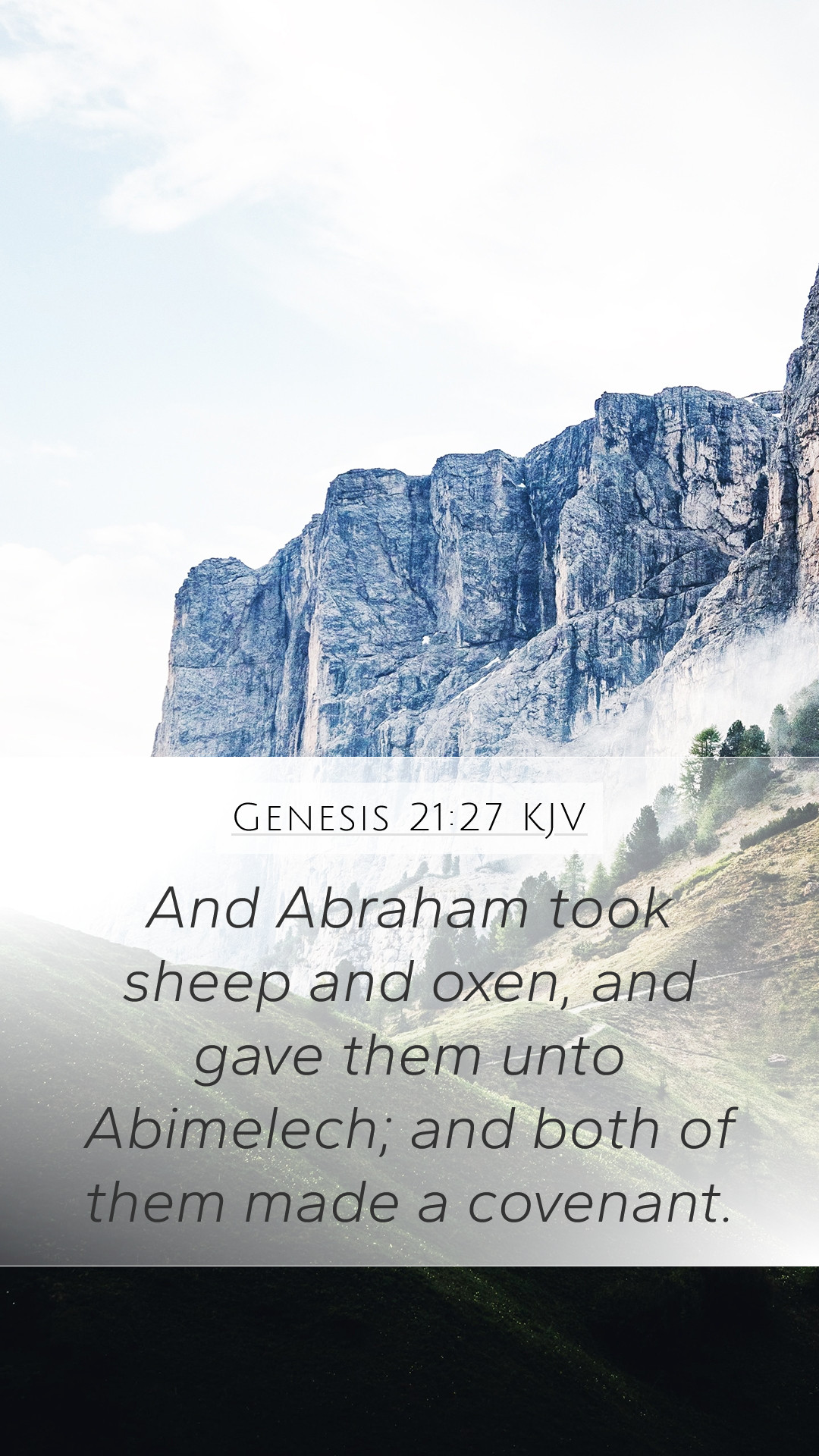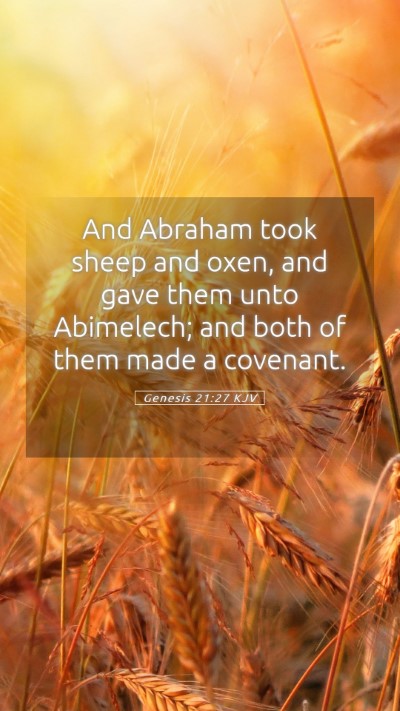Understanding Genesis 21:27
Genesis 21:27 states: "And Abraham took sheep and oxen, and gave them unto Abimelech; and both of them made a covenant." This verse marks a significant moment of agreement and peace between two parties, illustrating the importance of oaths and covenants in biblical narratives.
Bible Verse Meanings
This passage is rich with meaning and context, demonstrating not just a literal transaction but also the broader implications of faith, trust, and relations among peoples. The act of Abraham giving sheep and oxen signifies a gesture of goodwill and establishes a legal and moral bond between him and Abimelech.
- Abraham's Character: Abraham is portrayed as a man of integrity, engaging in actions that reflect his commitment to peaceful coexistence.
- Covenants in Scripture: Covenants are a recurring theme in the Bible, representing agreements made in the presence of God and often laying the groundwork for God's promises.
- Significance of the Gifts: The choice of sheep and oxen signifies abundance and a willingness to provide for others, a symbol of prosperity and peace.
Bible Verse Interpretations
Various commentaries shed light on this verse:
-
Matthew Henry:
Henry emphasizes the importance of maintaining peace through covenant and the significance of a man's word in an agreement. He illustrates how Abraham's dealings were marked by honesty and respect.
-
Albert Barnes:
Barnes articulates that this act marks a formal agreement that removes hostility and builds trust between Abraham and Abimelech. The act of giving gifts reinforces the seriousness of the commitment made.
-
Adam Clarke:
Clarke notes the cultural practice of covenant-making during that period and suggests that the exchange of livestock was a common and respected means of sealing a promise, likening it to modern contracts.
Biblical Exegesis
In-depth analysis of Genesis 21:27 reveals multiple layers of meaning:
- Historical Context: Understanding the relationships between different tribes and leaders in the Old Testament provides insight into the necessity of establishing peace through tangible commitments.
- Theological Implications: This moment foreshadows God's dealings with humanity, where the establishment of a covenant often required sacrifices, reflecting the ultimate sacrifice of Christ for humanity's reconciliation with God.
Bible Study Insights
The implications of this verse extend beyond its apparent meaning. For groups and individuals studying the Bible, this passage provides lessons on:
- The value of relationships: Building trust with others through transparent dealings is an important biblical principle.
- God's promises: Understanding how covenants in the Bible lead to profound divine assurances, setting the stage for later biblical events.
- Integrity in actions: The importance of keeping one's word as a testament to character.
Application of Genesis 21:27 in Daily Life
When interpreting Bible verses, especially Genesis 21:27, consider practical applications:
- Conduct in Business: This verse serves as a directive on honesty and transparency in our dealings.
- Conflict Resolution: It offers a model for resolving differences and coming to mutual agreements peacefully.
- Personal Relationships: Encourages individuals to build and maintain trustworthiness in personal connections.
Cross References
For deeper understanding, consider exploring these related verses:
- Genesis 15:18: God establishes a covenant with Abraham, showing the importance of promises between God and man.
- Genesis 26:28-29: Isaac also experiences a covenant with Abimelech, indicating a pattern of peaceful relations among them.
- Hebrews 6:16: This verse discusses the significance of oaths in validating commitments, which resonates with Abraham's actions here.


